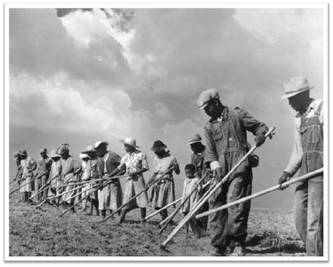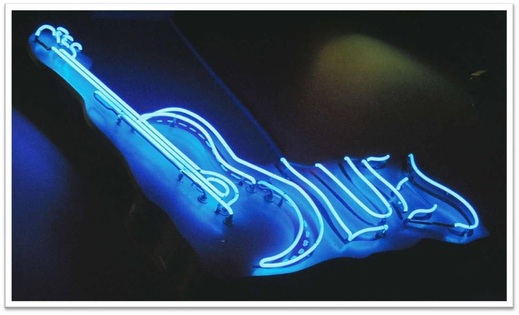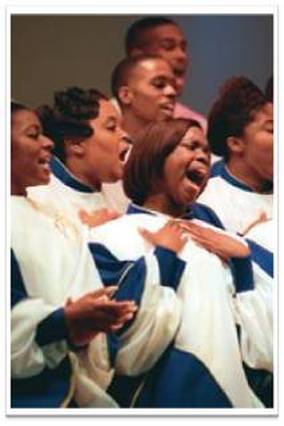Negro Spirituals

Slaves led very difficult lives. They were forbidden many things, but they were allowed to go to church and play music. Because they had so few things to enjoy, they put a great deal of energy into their music. Combining African rhythms and harmonies with messages of hope from the Bible, they created what are called “Negro spirituals.” Because slaves were often banned from using musical instruments, they created complex voice harmonies. The words of the songs were often taken from stories in the Bible that told about freedom and hope for a better future. Negro spirituals deeply influenced American music. They changed over time and were the basis for blues, Gospel music, and jazz. The basic structures of this kind of music are all taken from spirituals. Those forms of music in turn influenced rock ‘n’ roll, R&B, soul, reggae, and hip-hop.
Blues

Blues itself originated in isolated rural communities of the Mississippi River Delta, where mostly black musicians combined African rhythms and instrumentation with American folk themes . Many Southerners left agricultural jobs to work in industry in places like Memphis, Kansas City, and Chicago, and they took their blues traditions with them. While Delta Blues remained a distinguishable musical style and Field chants, which originated with slaves and carried over to the agricultural laborers in the 19th and 20th centuries, also supplied much of the musical history for the blues new schools of blues arose . With the invention of the electric guitar and bass, blues music took on a new character as played by a younger generation of musicians. Blues music was originated by many different performers, some of whom never recorded their music and are no longer known.
Gospel

Gospel is an American religious musical form that owes much of its origin to the Christian conversion of West Africans enslaved in the American South. Gospel music partly evolved from the songs slaves sang on plantations, notably work songs, and from the Protestant hymns they sang in church. However, gospel music did not derive as much from Protestant hymns as did spirituals. Gospel music was considered antithetical to blues and jazz , despite their similarity of origins, and gospel performers rarely sang in nonreligious settings. Later, as all three forms became popular outside the black community, they were less mutually exclusive. Composer and pianist Thomas A. Dorsey often referred to as "the father of the gospel song," played a major role in the development of gospel music as we know it today.